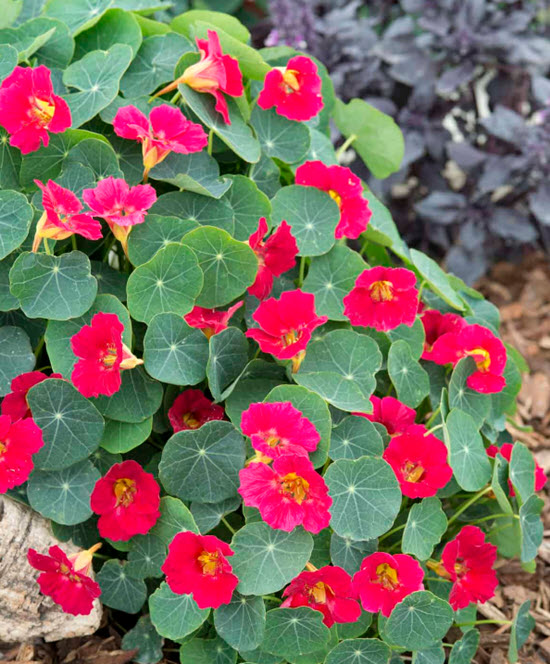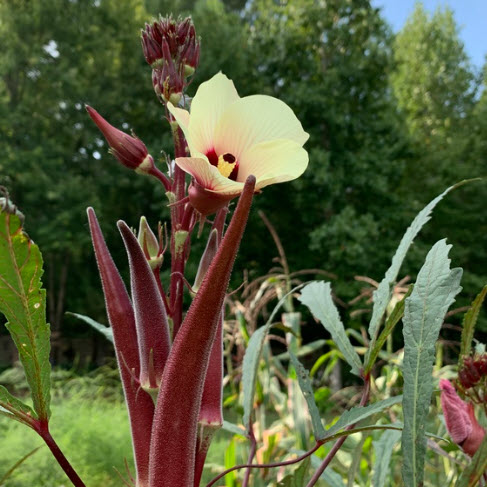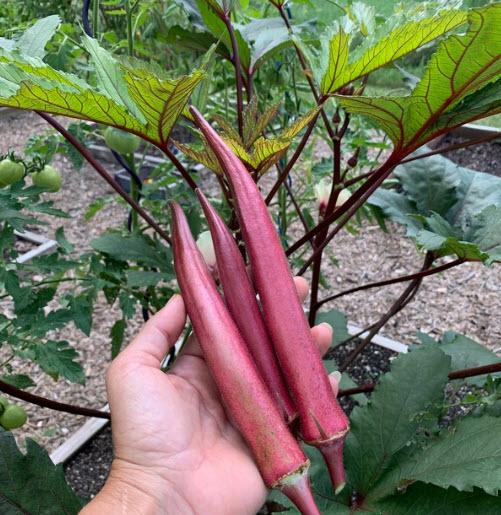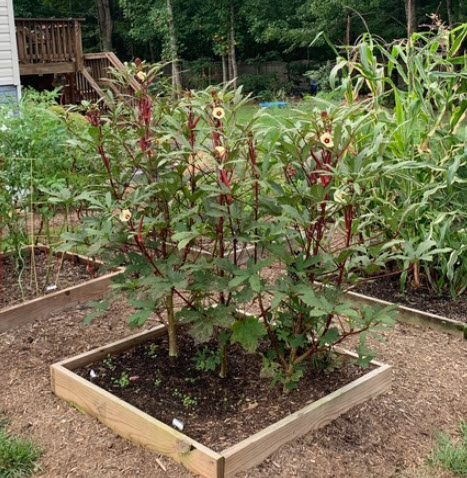Click below to listen to my 2 min. Garden Bite radio show/podcast: Discovering more AAS seed gifts
As I’ve mentioned, I received seeds from AAS. I looked at one packet with no clue what the heck it was. Tropaeolum minus with the cultivar called ‘Baby Rose’. I had to look it up!

It’s a nasturtium! A 2019 AAS winner, ‘Baby Rose’ is a petite-flowered, mounding variety with healthy, dark foliage on compact plants making it ideal for containers and small space gardens. It also means that the flowers don’t flop! The rose color is uncommon in nasturtiums and contrasts beautifully with the dark-green foliage.
And bonus, as I’ve mentioned before, both the leaves and flowers are edible! I put them in salads for their peppery taste. As a side note, the last nasturtium AAS Winner was back in the 1930s. I can’t wait to test this one out!
And now for something completely different, a vegetable I’ve never thought to plant. Okra. I’ve never deliberately eaten it although inadvertently I believe I had it in gumbo in New Orleans several decades ago! HA. So I went googling. Turns out there are plenty of ways to eat okra.
The aged fruit can be used in bouquets and the seed can be used as coffee, without the caffeine!
Most of the cultivars are green. Take a look at all the great pictures by Tracy Wood on plantsmap.com. Turns out this plant is NOTHING like I thought it would look!

The seeds I’ve received from AAS are for a red variety called ‘Candle Fire’. It’s a 2017 winner. They say it received high marks from the judges for productivity, taste, texture and tenderness as well as the ornamental value of red pods on red stems.

One judge said Candle Fire okra was quite maintenance free to grow, except for the frequent harvesting It thrives in the heat and is disease resistant even in hot humid climates like the south where it’s perfect for traditional fried okra.

Japanese beetles ARE attracted to the leaves of Okra.
